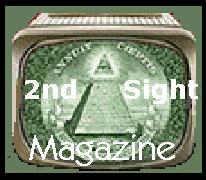May 2002 -- "Former President Jimmy Carter threw
a diplomatic curveball at the Bush administration yesterday during his second day in Cuba, challenging Washington's claims
that the communist country is exporting technology that could be used to make weapons of mass destruction."
- Newsday
Frankly, I don't see Carter's remarks as being a
"curveball" at all. Instead, I see his remarks as being carefully worded doublespeak which allowed him unprecedented access
to Cuban biochemical labs and scientists, while verifying two important points which actually support and justify the interest
of intelligence agencies. -- the Editor
Excerpts from former President Carter's Remarks
"With some degree of reluctance I would also like to comment on the allegation
of bioterrorism. I do this because these allegations were made maybe not coincidentally just before our visit to Cuba. In
preparation for this unprecedented visit, I requested, and we all received, intense briefings from the State Department, the
intelligence agencies of my country, and high officials in the White House. One purpose of this briefing was for them to share
with us any concerns that my government had about possible terrorist activities that were supported by Cuba. There were absolutely
no such allegations made or questions raised. I asked them specifically on more than one occasion is there any evidence that
Cuba has been involved in sharing any information to any other country on Earth that could be used for terrorist purposes.
And the answer from our experts on intelligence was no."
"One of the allegations was that Cuba was providing potentially terrorist
information to Libya and to Iran. The understanding I have this morning is that there is no relationship
at all between Cuba and Libya in this field, and that there is a standard contract prescribed by the international community
that any technology shared would be restrained from any illicit use. The relationship between Cuba and
Iran in this respect is just in the initial stages and has not reached the point of technological development." -- full text at Newsday
On the subject of Cuba, Carter said that there was no relationship,
only a standard contract. Hmmmm. And the relationship between Cuba and Iran as regards to biological weapons is only getting
started. Hmmmm. Think he's trying to tell us something here? Carter's statements also indicate that this bioterrorism agenda,
and perhaps the trip itself, was not entirely of his own making. -- the Editor
| Cuba Map and Montage |
|
|
| Past, Present, and Future? |
"These allegations were made, maybe not coincidentally, just before
our visit to Cuba," Carter said of concerns Bolton raised during a May 6 meeting of the Heritage Foundation, a conservative
research group in Washington. -- LA Times
State Department Wants Carter to Deliver Message to Castro
"The Bush administration wants former President
Jimmy Carter to pass on a message to Fidel Castro -- the time has come to make the transition to democracy." -- ABC
We have seen the diplomatic efforts of other
ex-US Presidents reap great rewards in opening doors to communication with countries where there has been mutual mistrust.
After leaving the White House under the cloud of the Iran hostage crisis, it may be that Jimmy Carter can achieve this with
Fidel Castro and Cuba. -- the Editor
|
 |
Carter's Post-Presidential Life Marked by Missions
Jimmy Carter's presidency may have ended ignominiously in 1981 but his
redemptive afterlife has marked him a peacemaker from Bosnia to Haiti and now to Castro's communist Cuba. -- Talahassee.com
Cuban officials have been irritated with some other foreign leaders
who have held similar meetings, but Castro said Carter had proved his sincerity in the past. "A man who, in the middle of
the Cold War and from the depth of an ocean of prejudice, misinformation and distrust ... dared to try to improve relations
between both countries deserves respect." Speaking in Spanish, Carter said he hoped "to discuss ideals that Rosalynn and I
hold dear ... peace, human rights, democracy and the alleviation of suffering." -- LA Times
|
 |
 |
 |
|
Cuba References and Resources
US State Department: Demographic profile, economy (GNP, annual growth rate), people, history, government (principal government officials,
national security), foreign relations, US-Cuban relations (Havana: US interests section), travel and business information.
US Central Intelligence Agency: Cuba Handbook of Trade Statistics 1998
The History of Cuba: from 1898 until the Revolution in 1959
The Cuban Revolution
Cubans in Miami: Cuban Exile Newspapers at the University of Miami.
Cuba and Cuban Americans on the Internet
Americans on Sanctions on Iran, Libya, and Cuba
Public opinion poll conducted for the The Program on International Policy
Attitudes, May 8, 1998. Findings: A strong majority of Americans support the sanctions on Iran and Libya, but support for
the sanctions on Cuba is soft. Sponsored by the German Marshall Fund of the US.
The Chairman Smiles: Cuban Revolution Posters
Excerpt: "With a small rebel army, Fidel Castro seizes power in Cuba by the end of 1958. Although he tries to take an independent
line, he must deal with significant Russian influence on the new regime."
Posters of the Cuban Revolution
|
|
 |
 |
 |
|
|
|

